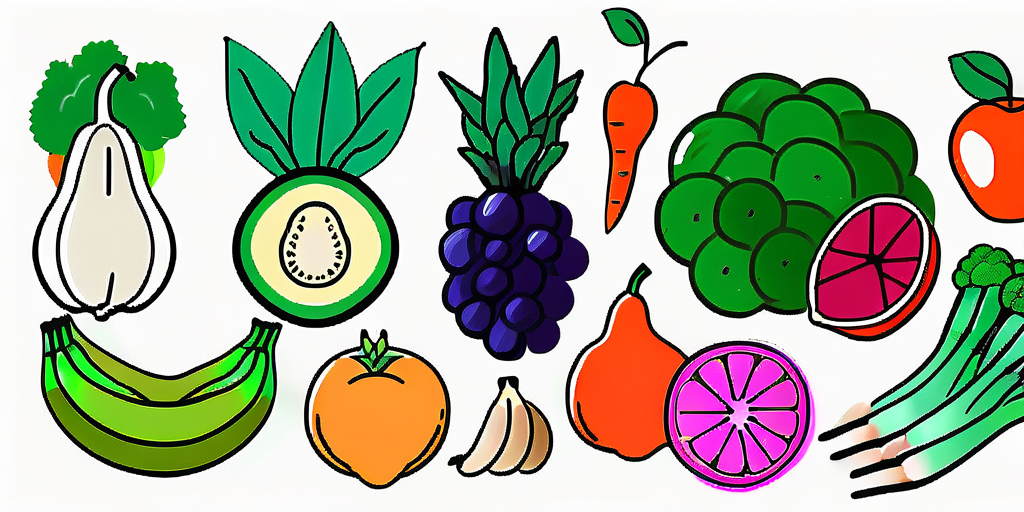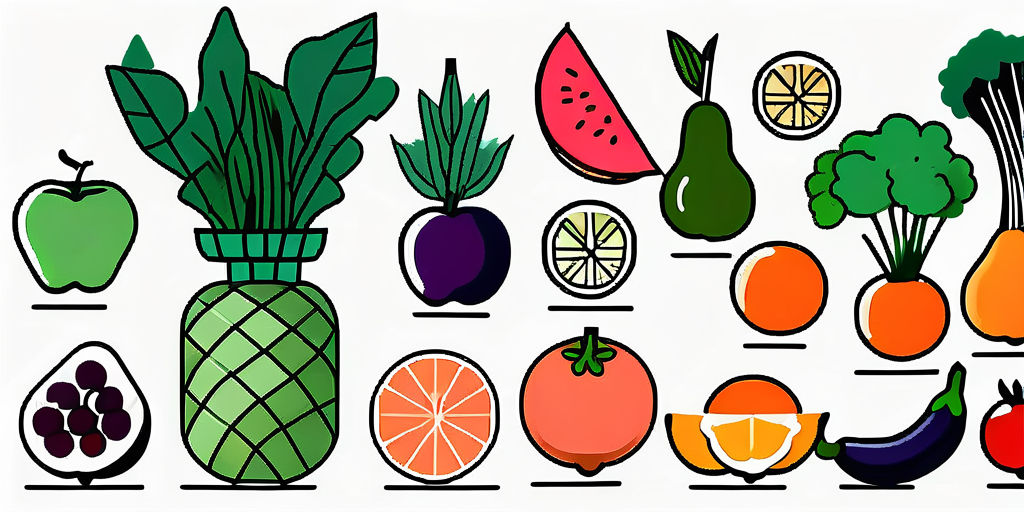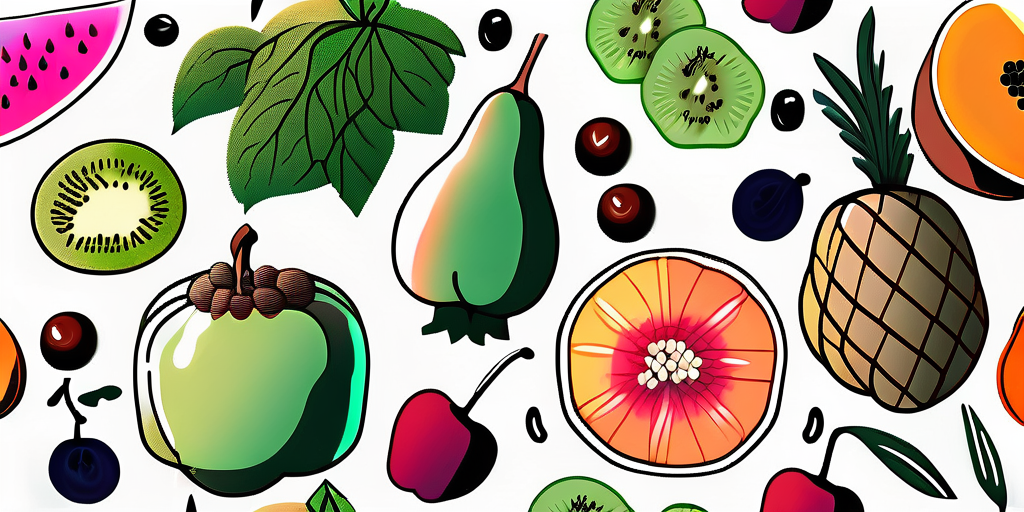The health and appearance of our skin are influenced by various factors, and one of the most crucial ones is our diet. What we eat can have a profound impact on how our skin looks and feels. By understanding the connection between nutrition and skin health, we can make informed choices about the foods we consume to nourish our complexion.
Understanding the Connection Between Diet and Skin Health
Skin health is not solely determined by the products we apply topically; it starts from within. The food we eat provides the building blocks our skin needs to regenerate and maintain its youthful appearance. Our bodies require a range of vitamins, minerals, proteins, fats, and antioxidants to promote healthy skin function.
When it comes to achieving radiant and healthy skin, it's important to understand the role of nutrition in skin care. Proper nutrition is essential for overall skin health. What we eat can either support or hinder the various processes that occur in our skin, such as collagen production, tissue repair, and cellular turnover. By fueling our bodies with the right nutrients, we can optimize these processes and promote a glowing complexion.
So, how exactly does food affect your skin? The foods we consume can either nourish or harm our skin. Processed foods high in sugar and unhealthy fats can contribute to inflammation and oxidative stress, leading to a dull and aged appearance. These foods can also disrupt the balance of hormones in our bodies, which can further exacerbate skin issues such as acne or eczema. On the other hand, a diet rich in whole foods provides the necessary vitamins, minerals, and antioxidants to fight off free radicals and maintain a youthful glow.
Let's delve deeper into the impact of different nutrients on our skin. Vitamin C, for example, is essential for collagen synthesis, which helps keep our skin firm and supple. Citrus fruits, bell peppers, and leafy greens are all excellent sources of vitamin C. Another important nutrient for skin health is vitamin E, which acts as a powerful antioxidant, protecting our skin cells from damage caused by free radicals. Foods like almonds, spinach, and sunflower seeds are packed with vitamin E.
In addition to vitamins, minerals also play a crucial role in maintaining healthy skin. Zinc, for instance, aids in wound healing and helps regulate oil production in the skin. Foods rich in zinc include oysters, beef, and pumpkin seeds. Selenium, another important mineral, helps protect the skin from UV damage and can be found in foods like brazil nuts, seafood, and whole grains.
Furthermore, healthy fats are essential for maintaining the integrity of our skin's barrier function. Omega-3 fatty acids, found in fatty fish like salmon and sardines, as well as walnuts and flaxseeds, help keep our skin hydrated and supple. On the other hand, consuming excessive amounts of unhealthy fats, such as those found in fried and processed foods, can lead to inflammation and clogged pores.
It's also worth mentioning the role of antioxidants in skin health. Antioxidants help neutralize free radicals, which are unstable molecules that can cause damage to our skin cells. Berries, dark chocolate, and green tea are all rich in antioxidants and can help protect our skin from premature aging.
In conclusion, the connection between diet and skin health is undeniable. By nourishing our bodies with a balanced diet rich in whole foods, we can provide our skin with the necessary nutrients to thrive. Remember, healthy skin starts from within, so make sure to prioritize nutrition alongside your skincare routine for a radiant and youthful complexion.
Essential Nutrients for Healthy Skin
To achieve and maintain healthy skin, it's important to ensure we are consuming a well-rounded diet that includes a variety of essential nutrients. Our skin is the largest organ in our body and acts as a protective barrier against external factors. Therefore, it requires proper nourishment to stay healthy and radiant.

Let's delve deeper into the world of skincare and explore the importance of various nutrients in promoting skin health.
The Importance of Vitamins and Minerals
Many vitamins and minerals play crucial roles in skin health. Vitamin C, for example, is necessary for collagen synthesis, which gives skin its strength and elasticity. Collagen is a protein that provides structural support to the skin, keeping it firm and supple. Including vitamin C-rich foods in our diet, such as citrus fruits, berries, and leafy greens, can help maintain a youthful complexion.
Vitamin E acts as an antioxidant, protecting skin cells from damage caused by free radicals. Free radicals are unstable molecules that can cause oxidative stress, leading to premature aging and skin damage. By incorporating vitamin E sources like almonds, sunflower seeds, and avocados into our meals, we can enhance our skin's defense against environmental aggressors.
In addition to vitamins, minerals like zinc and selenium also contribute to skin health. Zinc plays a vital role in regulating oil production and supporting the body's natural defense mechanisms. It aids in wound healing and can help reduce acne breakouts. Selenium, on the other hand, acts as an antioxidant and promotes tissue repair. Including zinc-rich foods like oysters, pumpkin seeds, and legumes, as well as selenium-rich foods like Brazil nuts, eggs, and whole grains, can help maintain a healthy and vibrant complexion.
Fats and Proteins: Building Blocks for Skin Health
Healthy fats, such as omega-3 fatty acids found in fish and nuts, play a vital role in maintaining skin moisture and elasticity. These fats help strengthen the skin's natural barrier, preventing water loss and keeping it hydrated. Incorporating fatty fish like salmon, walnuts, and chia seeds into our diet can enhance skin suppleness and reduce dryness.
Proteins, on the other hand, are essential for tissue repair and collagen formation. Collagen, as mentioned earlier, is crucial for maintaining skin elasticity and reducing the appearance of wrinkles. Consuming sources of lean protein like poultry, legumes, and tofu can support a healthy complexion. Additionally, protein-rich foods contain amino acids that aid in the production of new skin cells, promoting a youthful and radiant appearance.
Remember, achieving healthy skin requires a holistic approach that includes a balanced diet, proper hydration, regular exercise, and a consistent skincare routine. By nourishing our bodies with the right nutrients, we can support our skin's natural functions and achieve a glowing complexion.
Top Foods for Glowing Skin
To enhance the radiance of our skin, it's important to incorporate specific foods into our diet that are known for their skin-nourishing properties.

Did you know that what you eat can have a direct impact on the health and appearance of your skin? It's true! By including certain foods in your diet, you can help promote a youthful, glowing complexion.
Fruits and Vegetables: Nature's Skin Boosters
Fruits and vegetables are not only good for your overall health, but they are also great for your skin. They are rich in antioxidants, vitamins, and minerals that can support skin health.
Let's talk about berries for a moment. These tiny fruits are packed with antioxidants that help protect against sun damage and promote a youthful complexion. Whether it's strawberries, blueberries, or raspberries, incorporating these delicious fruits into your diet can do wonders for your skin.
But it's not just berries that can work wonders for your skin. Leafy greens like spinach and kale are high in vitamins A and C, which contribute to collagen production and skin cell renewal. So, next time you're making a salad, be sure to include a generous portion of these greens.
Seafood and Skin Health: The Benefits of Omega-3
When it comes to maintaining healthy skin, omega-3 fatty acids are your best friend. And where can you find these healthy fats? In fatty fish like salmon, mackerel, and sardines!
Omega-3 fatty acids help to maintain skin moisture and reduce inflammation, which can be beneficial for conditions such as acne, psoriasis, and eczema. So, if you're looking to improve the health and appearance of your skin, consider adding more seafood to your diet.
Not a fan of seafood? Don't worry! There are other plant-based sources of omega-3 fatty acids, such as chia seeds, flaxseeds, and walnuts. These can be great alternatives for those who prefer a vegetarian or vegan diet.
Remember, a healthy diet is just one piece of the puzzle when it comes to achieving glowing skin. It's also important to stay hydrated, get enough sleep, and protect your skin from harmful UV rays. By taking care of your skin from the inside out, you can enjoy a complexion that radiates health and beauty.
Hydration and Skin Health
While it's important to nourish our skin from within, maintaining proper hydration is equally crucial for a healthy complexion. Our skin is the largest organ in our body and plays a vital role in protecting us from external factors such as pollution, UV radiation, and harsh weather conditions. Therefore, it is essential to keep our skin well-hydrated to ensure its optimal function and appearance.
The Impact of Water Intake on Skin
Dehydration can lead to dryness, dullness, and fine lines on the skin. When our body lacks sufficient water, our skin becomes less elastic and loses its natural plumpness. This can result in a tired and aged appearance. By drinking an adequate amount of water each day, we can help maintain skin hydration, promote detoxification, and support overall skin health.
Water acts as a natural moisturizer for our skin, helping to replenish and lock in moisture. It aids in maintaining the skin's natural barrier function, preventing excessive water loss and keeping our skin soft and supple. Additionally, proper hydration improves blood circulation, ensuring that essential nutrients and oxygen reach the skin cells, promoting a healthy and glowing complexion.
Moreover, staying hydrated can also help reduce the occurrence of common skin issues such as acne and inflammation. When our body is well-hydrated, it can effectively flush out toxins and impurities, reducing the likelihood of clogged pores and breakouts. It also supports the production of collagen, a protein that gives our skin its structure and elasticity, helping to minimize the appearance of wrinkles and fine lines.
Hydrating Foods for a Radiant Complexion
In addition to drinking enough water, we can also consume foods with high water content to boost our skin's hydration levels. Cucumbers, watermelon, and celery are excellent examples of hydrating foods that can help achieve a radiant complexion.
Cucumbers are made up of approximately 96% water, making them an excellent choice for hydrating the skin from the inside out. They are also rich in antioxidants, such as vitamin C and beta-carotene, which help protect the skin against free radicals and promote a youthful appearance.
Watermelon, with its juicy and refreshing nature, is not only a delicious summer fruit but also a fantastic source of hydration for the skin. It contains high levels of water, vitamins A and C, and lycopene, all of which contribute to maintaining healthy and glowing skin.
Celery is another hydrating food that can work wonders for your complexion. It is packed with water, fiber, and essential vitamins and minerals, including vitamin K, vitamin C, and potassium. These nutrients help nourish the skin, improve its texture, and promote a clear and radiant appearance.
By incorporating these hydrating foods into our diet along with regular water intake, we can ensure that our skin remains well-hydrated, healthy, and radiant.
Foods to Avoid for Clear Skin
While incorporating skin-nourishing foods into our diet is essential, it's also important to be mindful of certain foods that may negatively impact our skin.

The Effects of Sugar on Skin
Consuming excessive amounts of sugar can lead to inflammation and glycation, a process that damages collagen and elastin fibers, resulting in premature aging. To maintain clear and youthful-looking skin, it's best to limit our intake of sugary foods and beverages.
Dairy and Skin: A Controversial Relationship
Some individuals may find that dairy products exacerbate skin conditions such as acne. While research is ongoing, it may be worth exploring the impact of dairy on your own skin. If you suspect a connection, try eliminating or reducing dairy consumption to see if it improves your complexion.
In conclusion, the best food for our skin is a varied and balanced diet that incorporates nutrient-dense whole foods. By understanding the connection between nutrition and skin health, we can make informed choices about what we eat to nourish our complexion. Incorporating foods rich in vitamins, minerals, healthy fats, and antioxidants can promote a youthful and radiant appearance. Additionally, staying hydrated and being mindful of our sugar and dairy consumption can contribute to clearer and healthier skin. So, let's feed our skin from within and embrace the power of nutrition for a glowing complexion.




